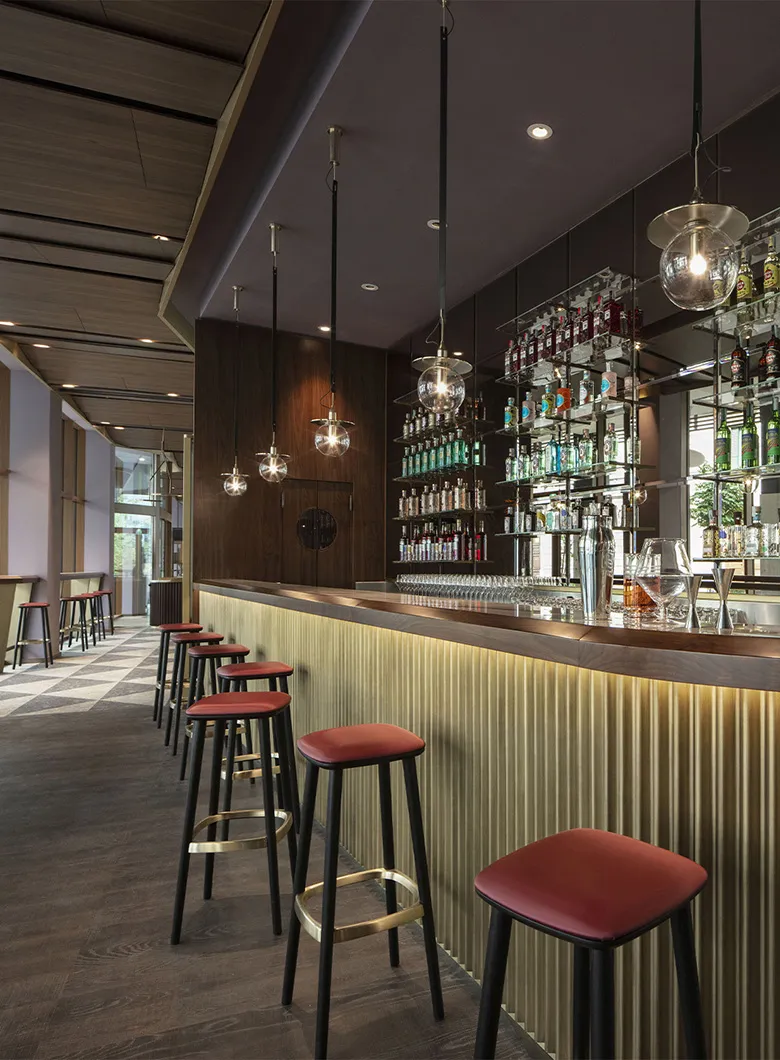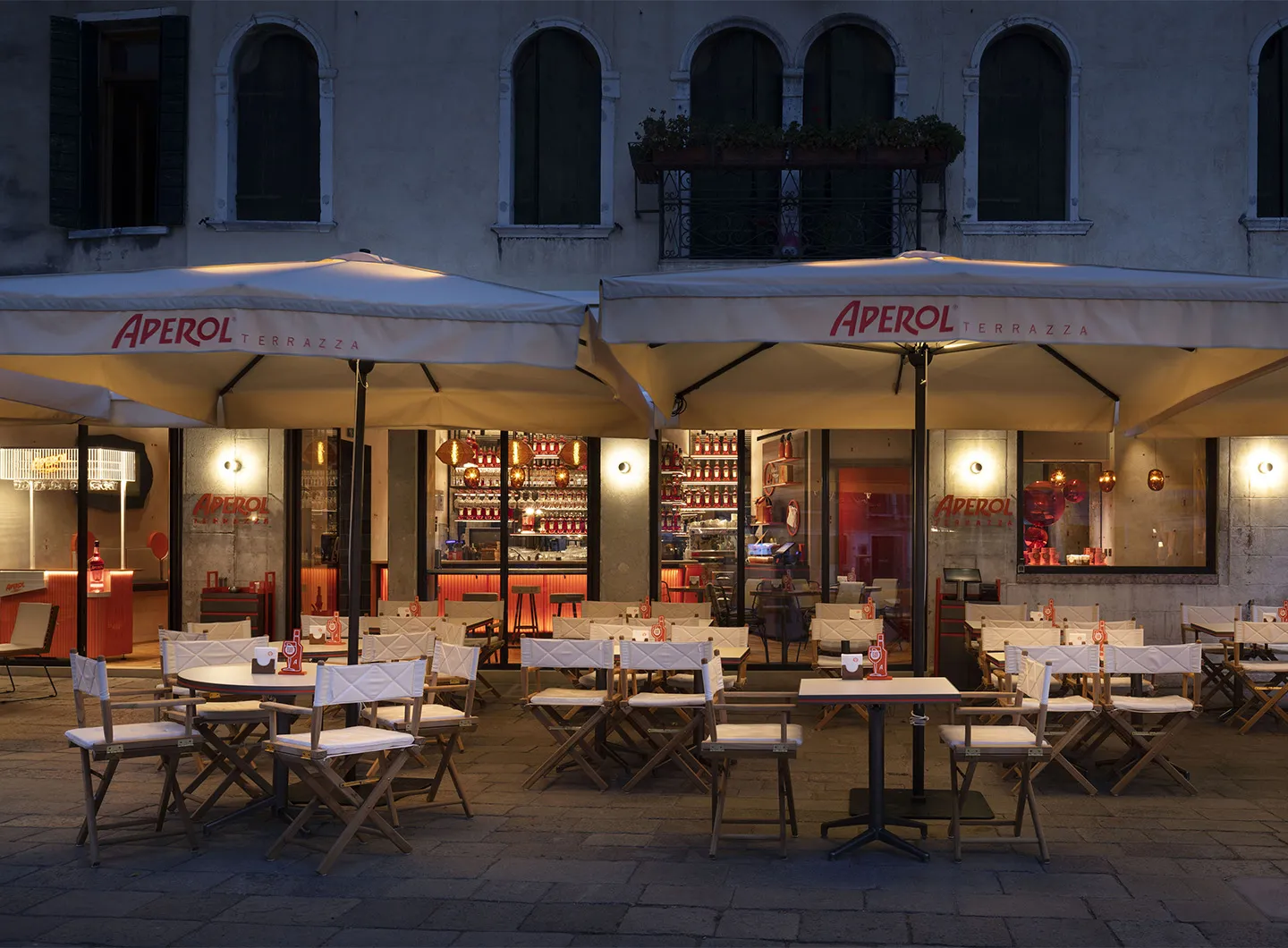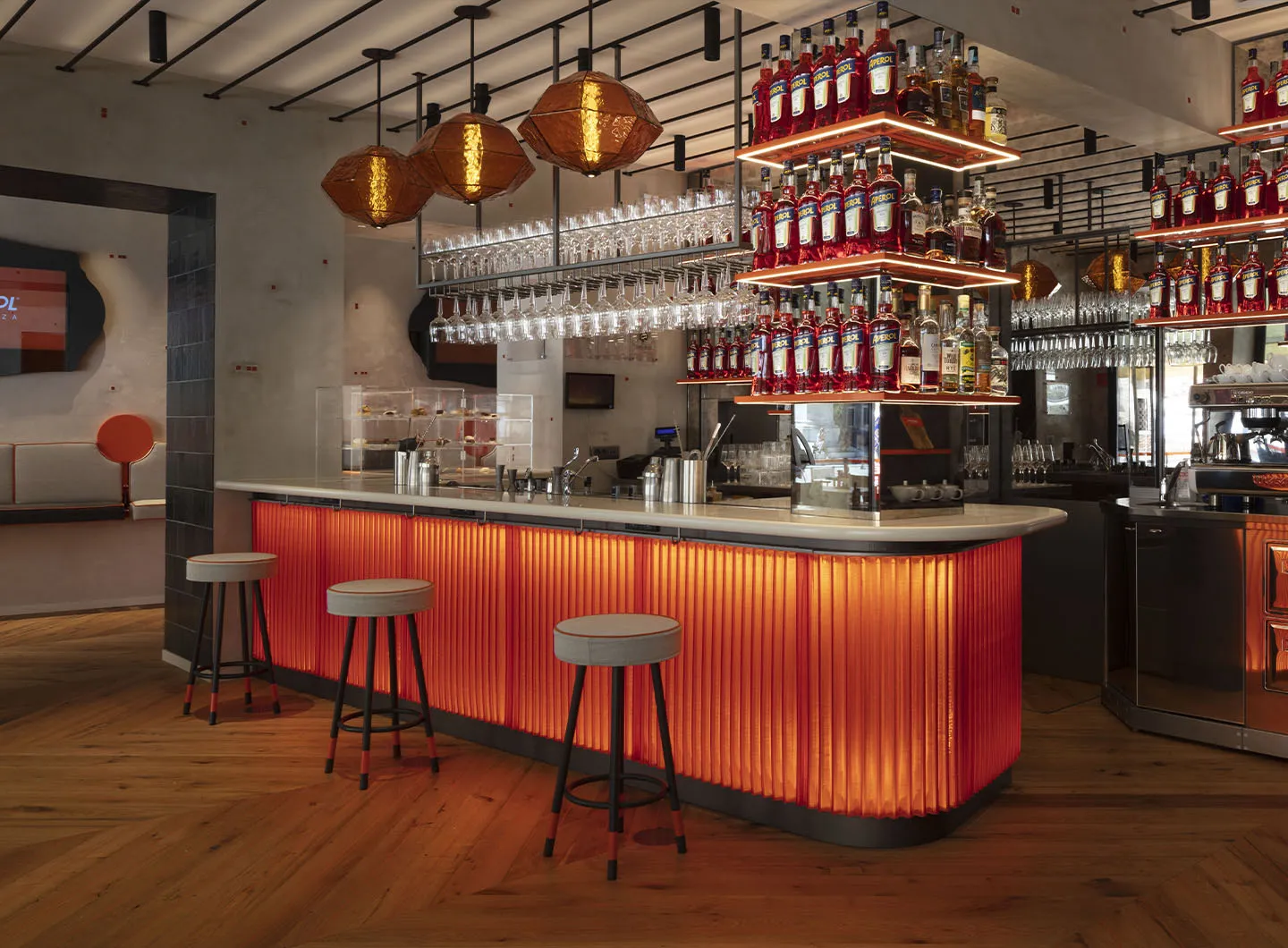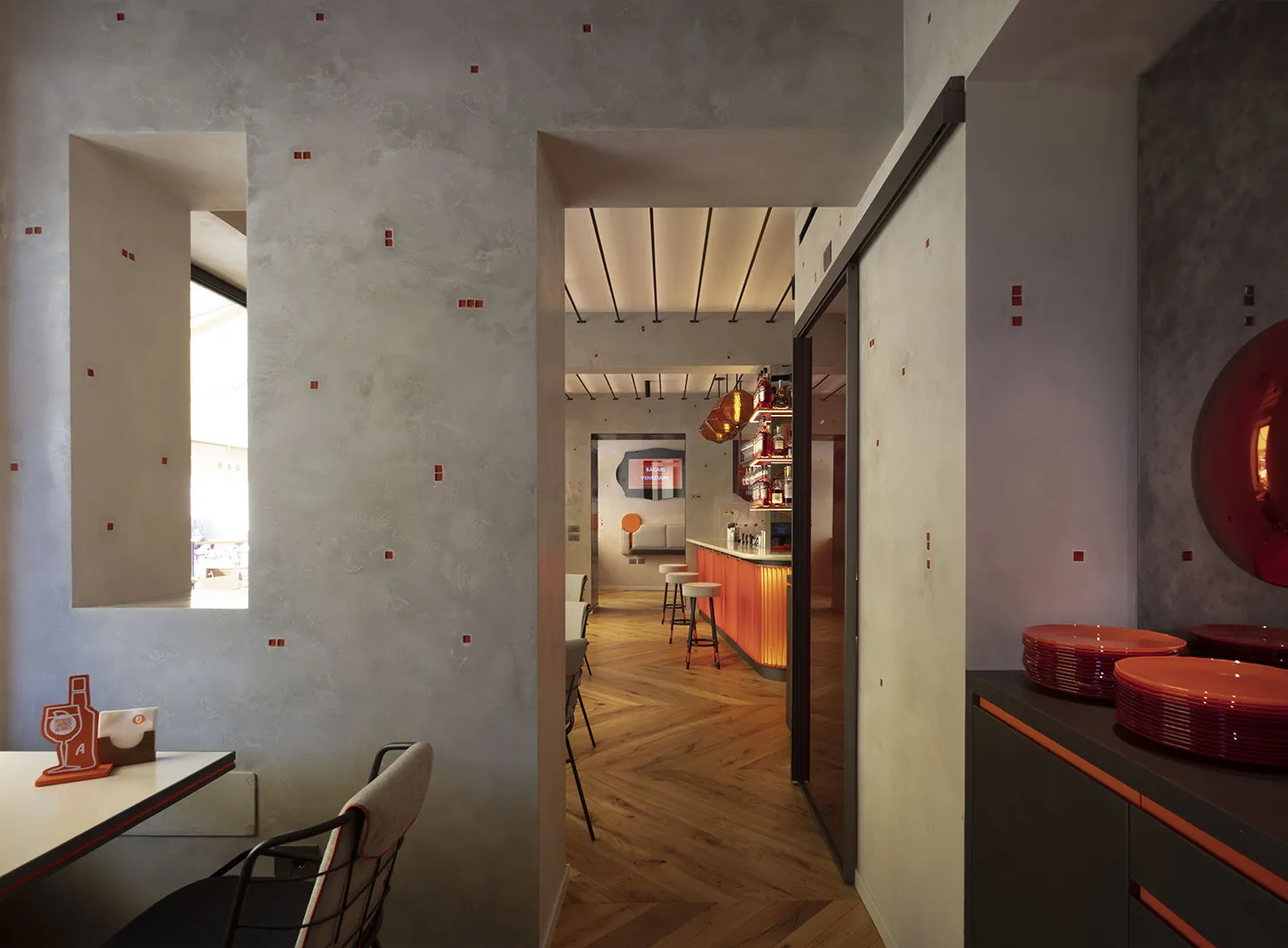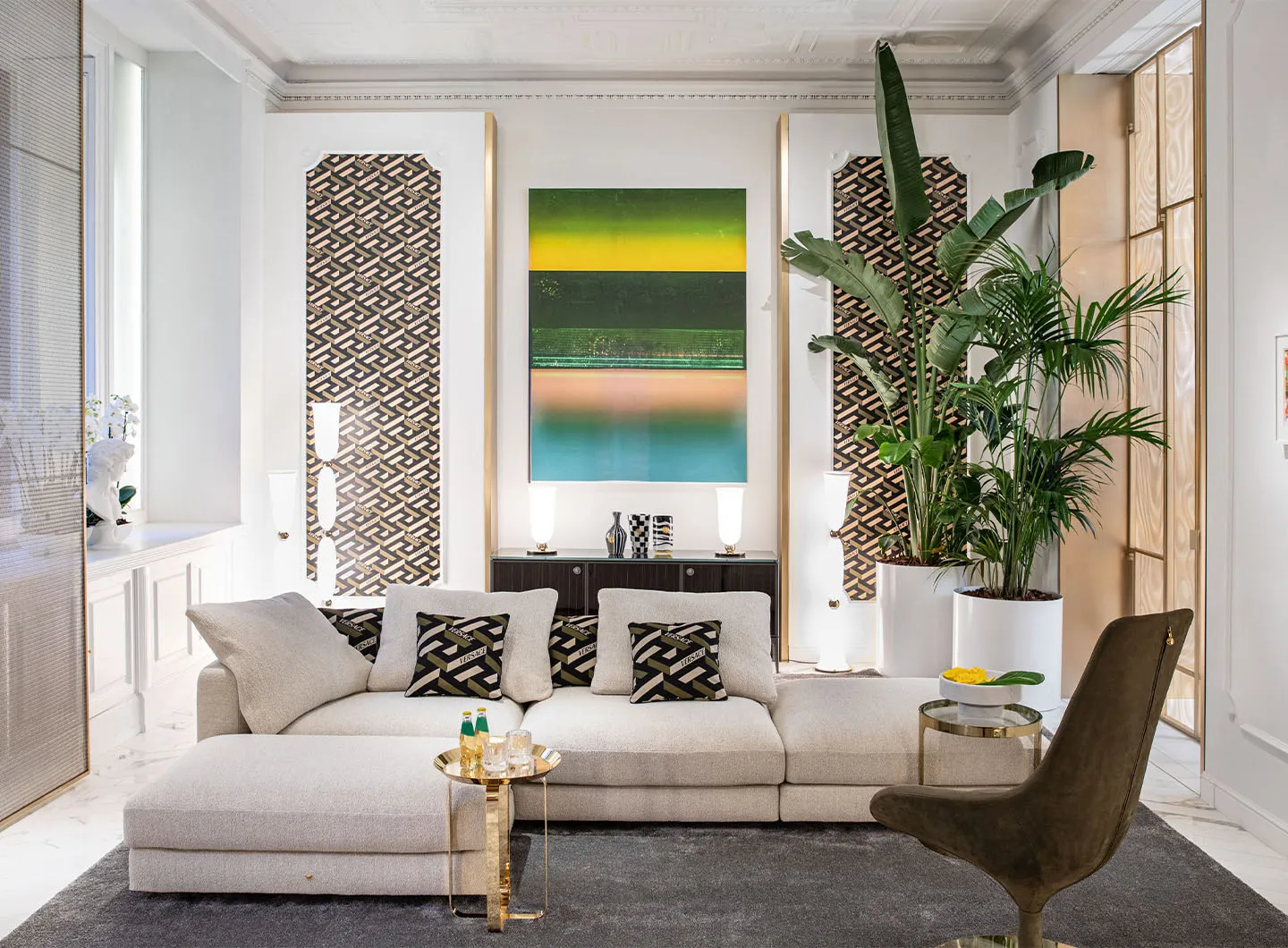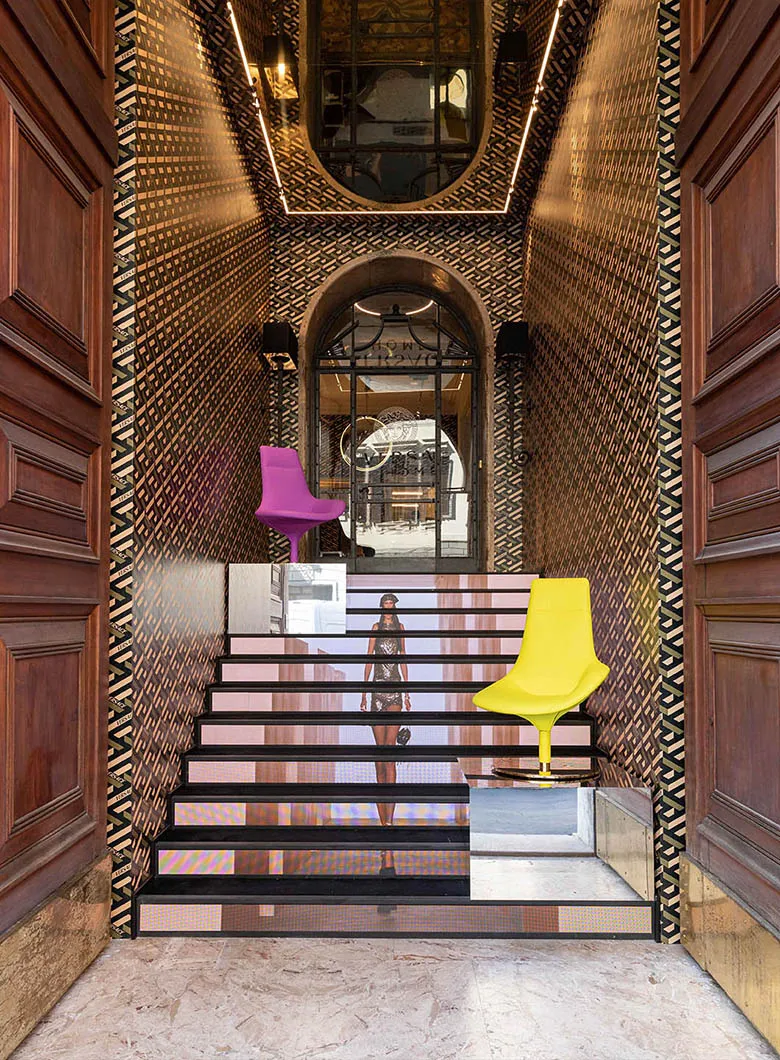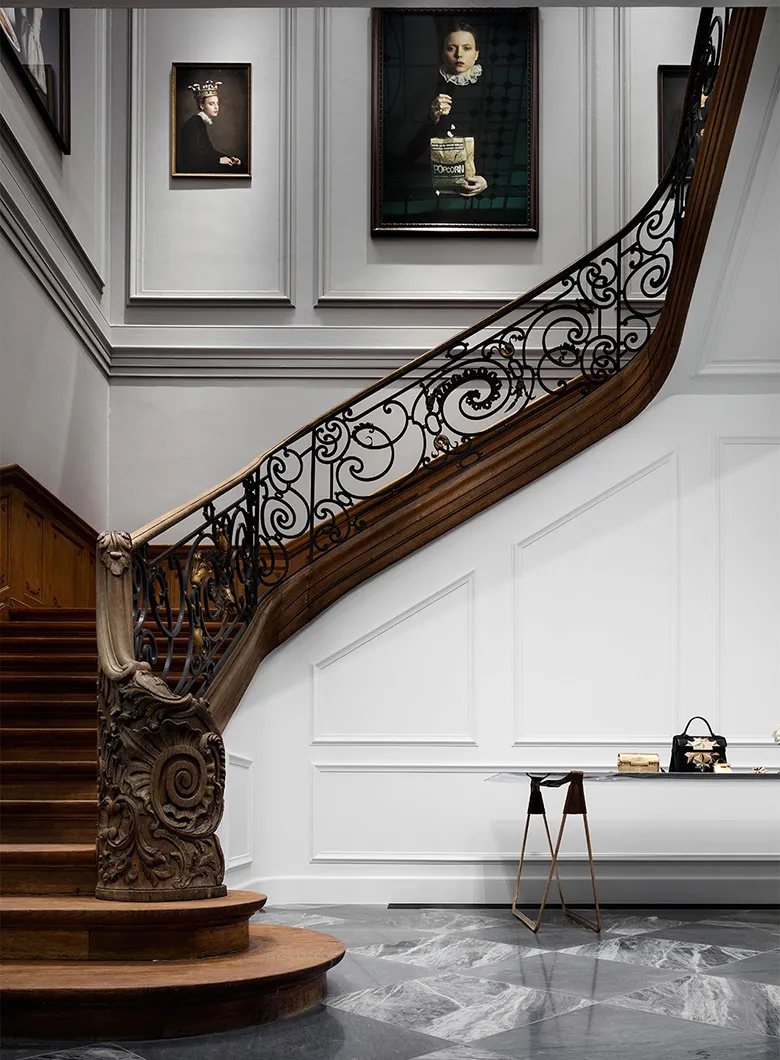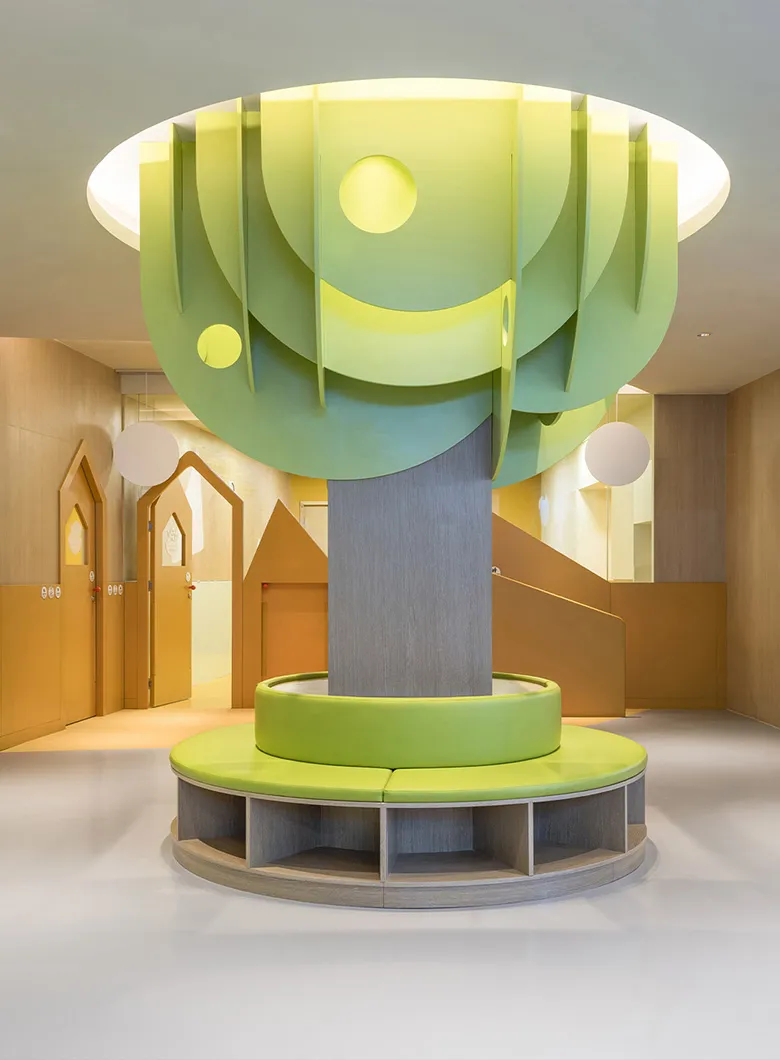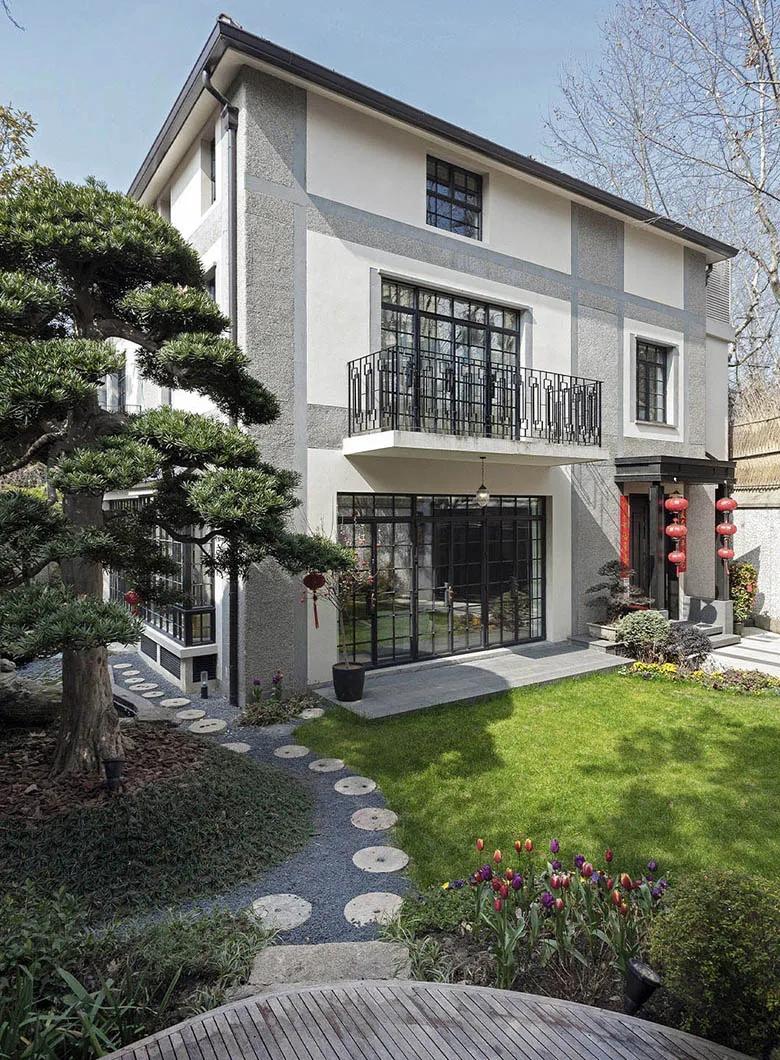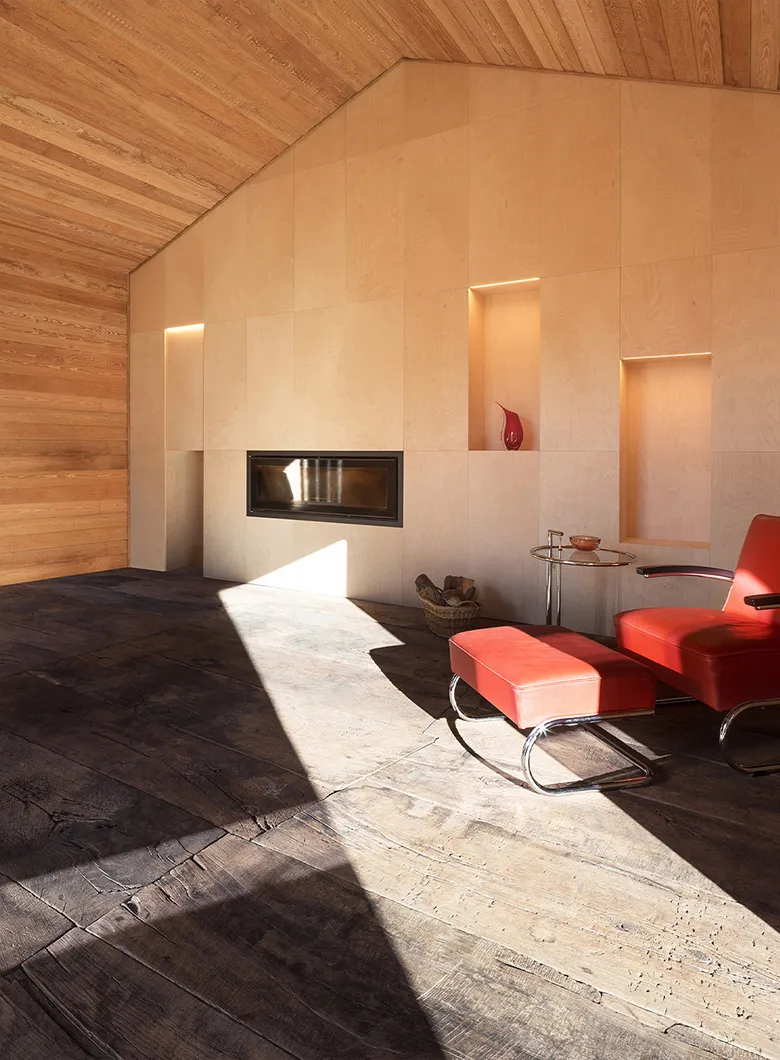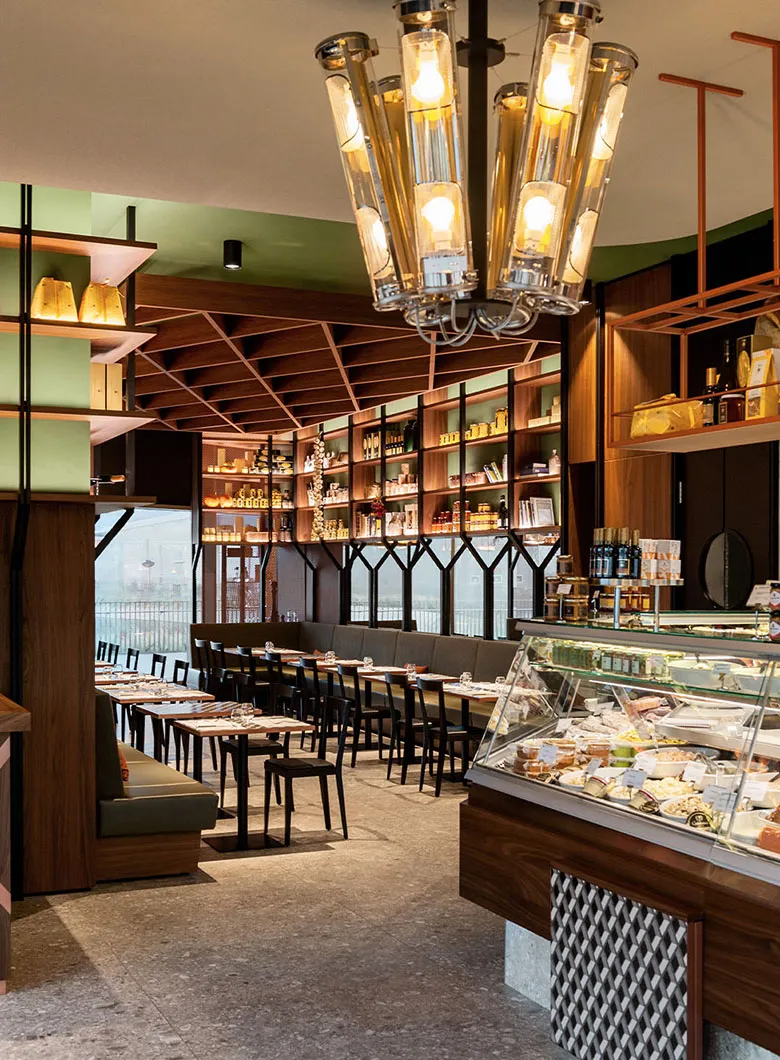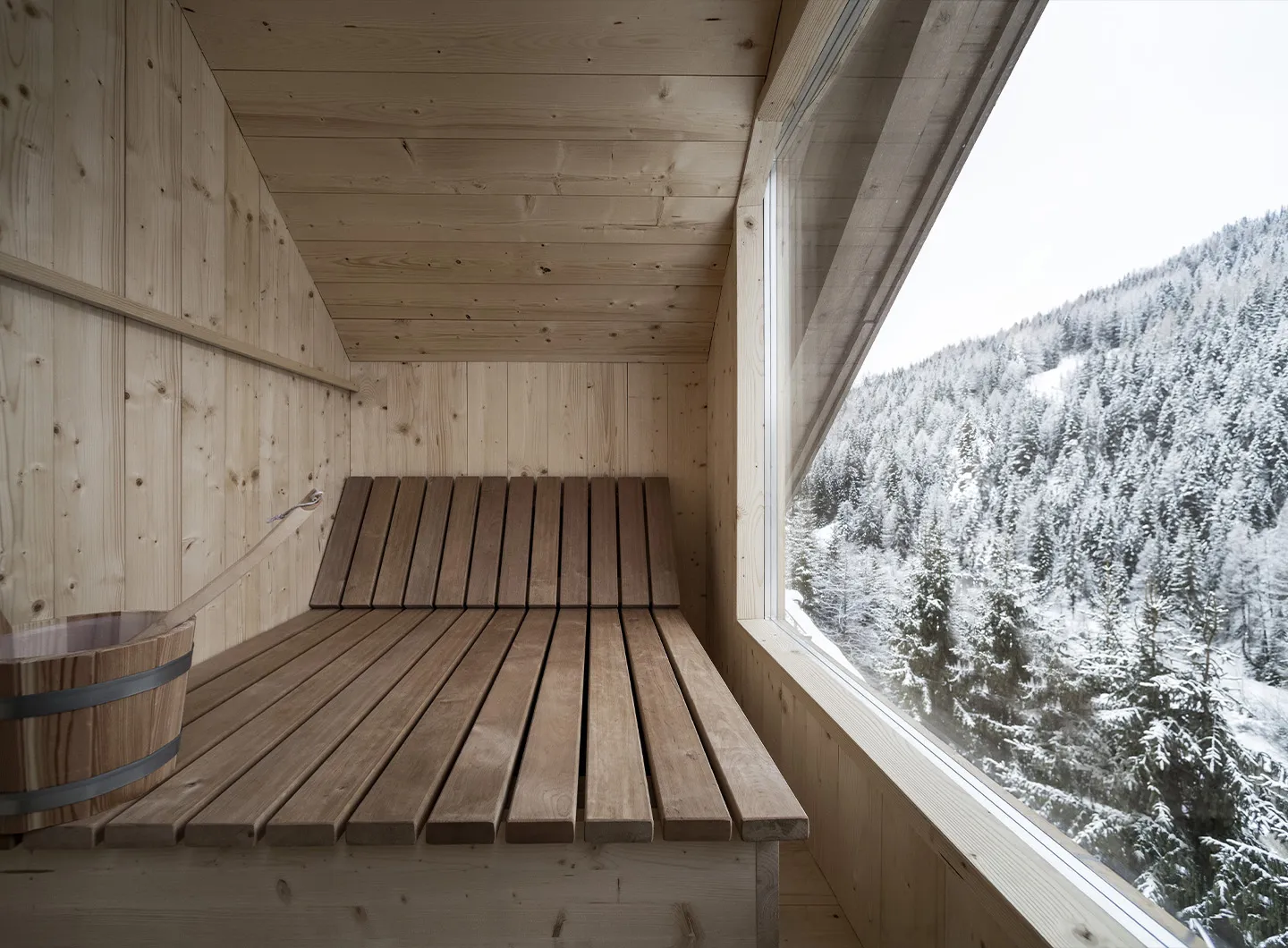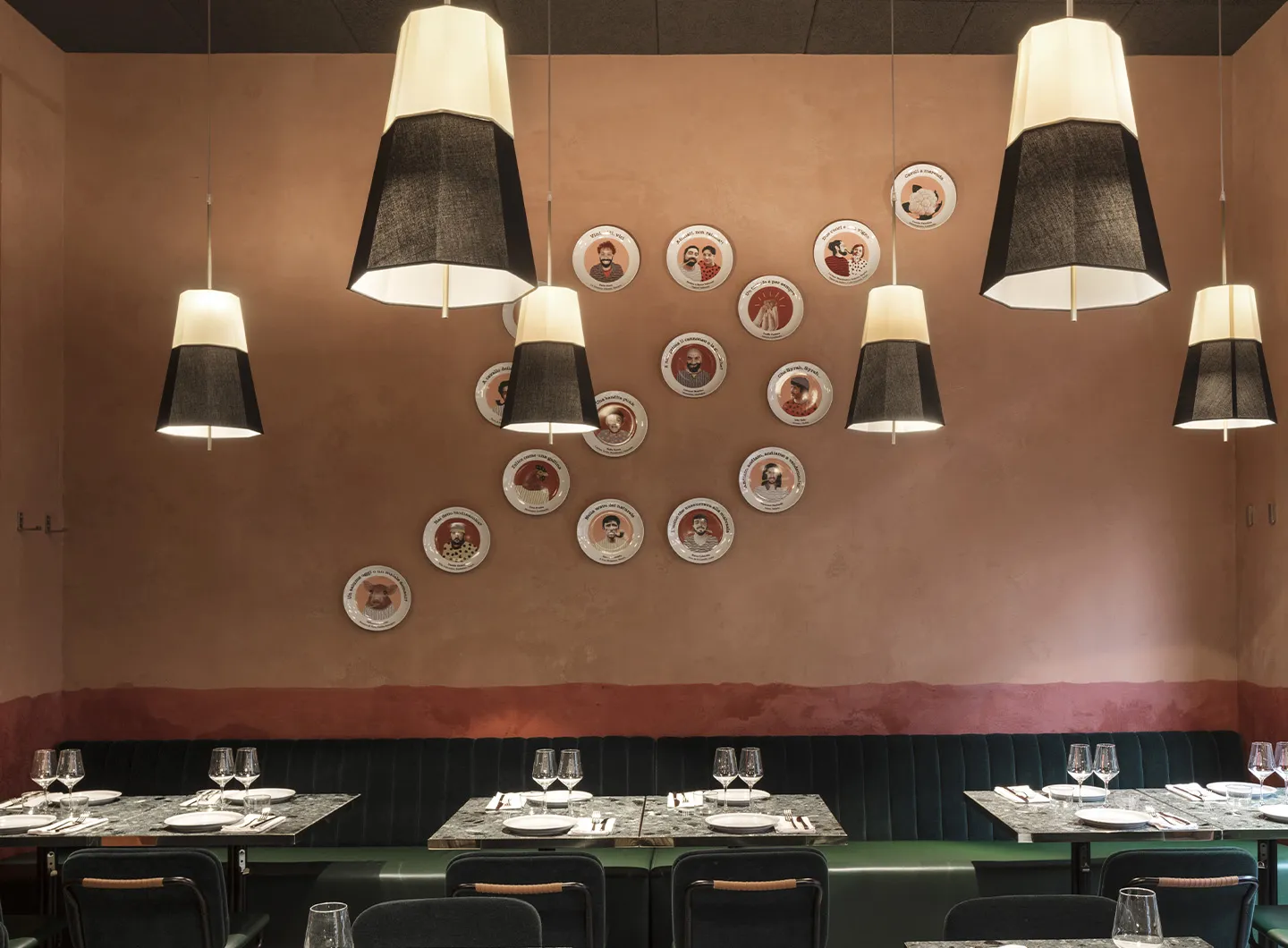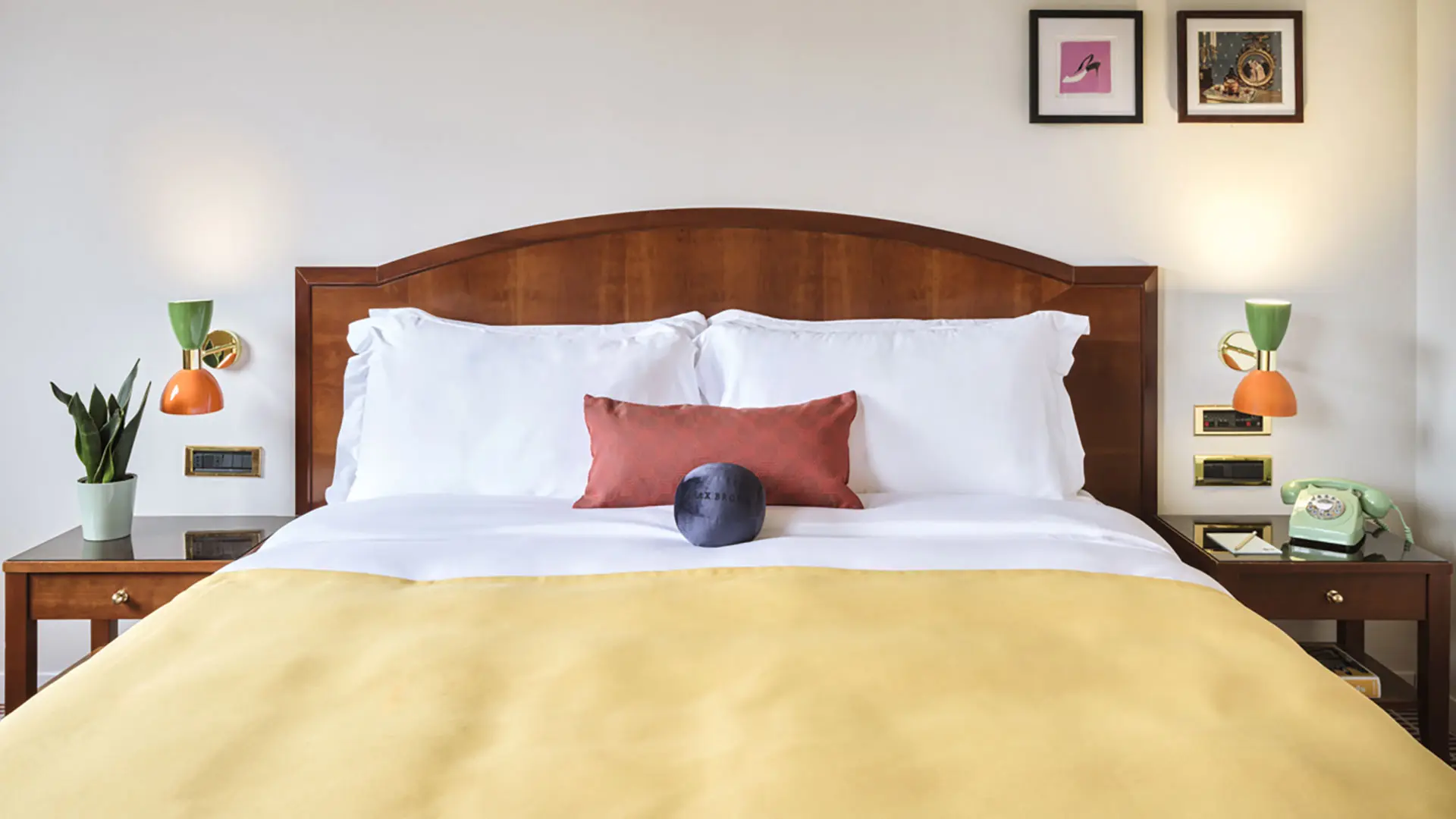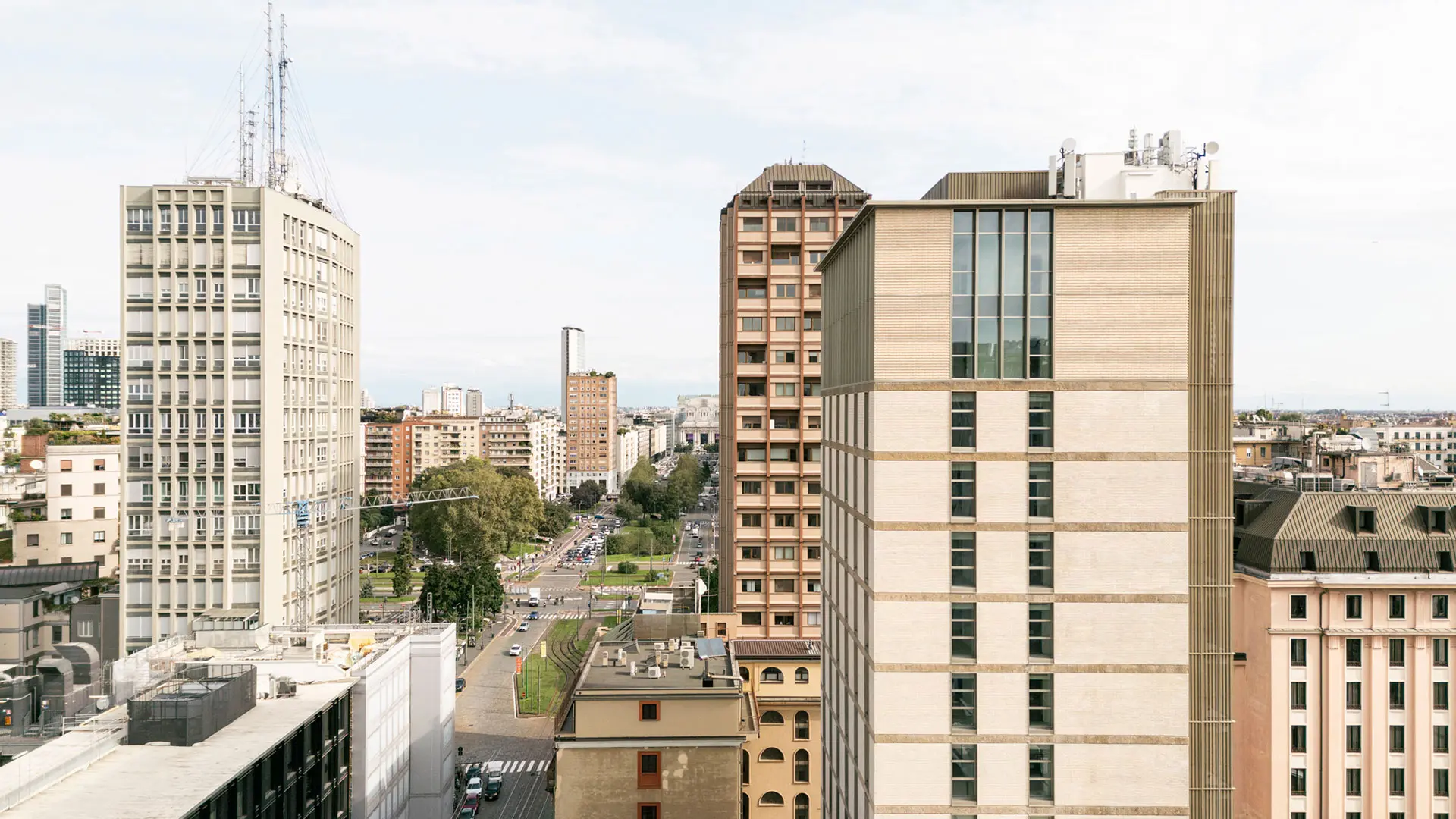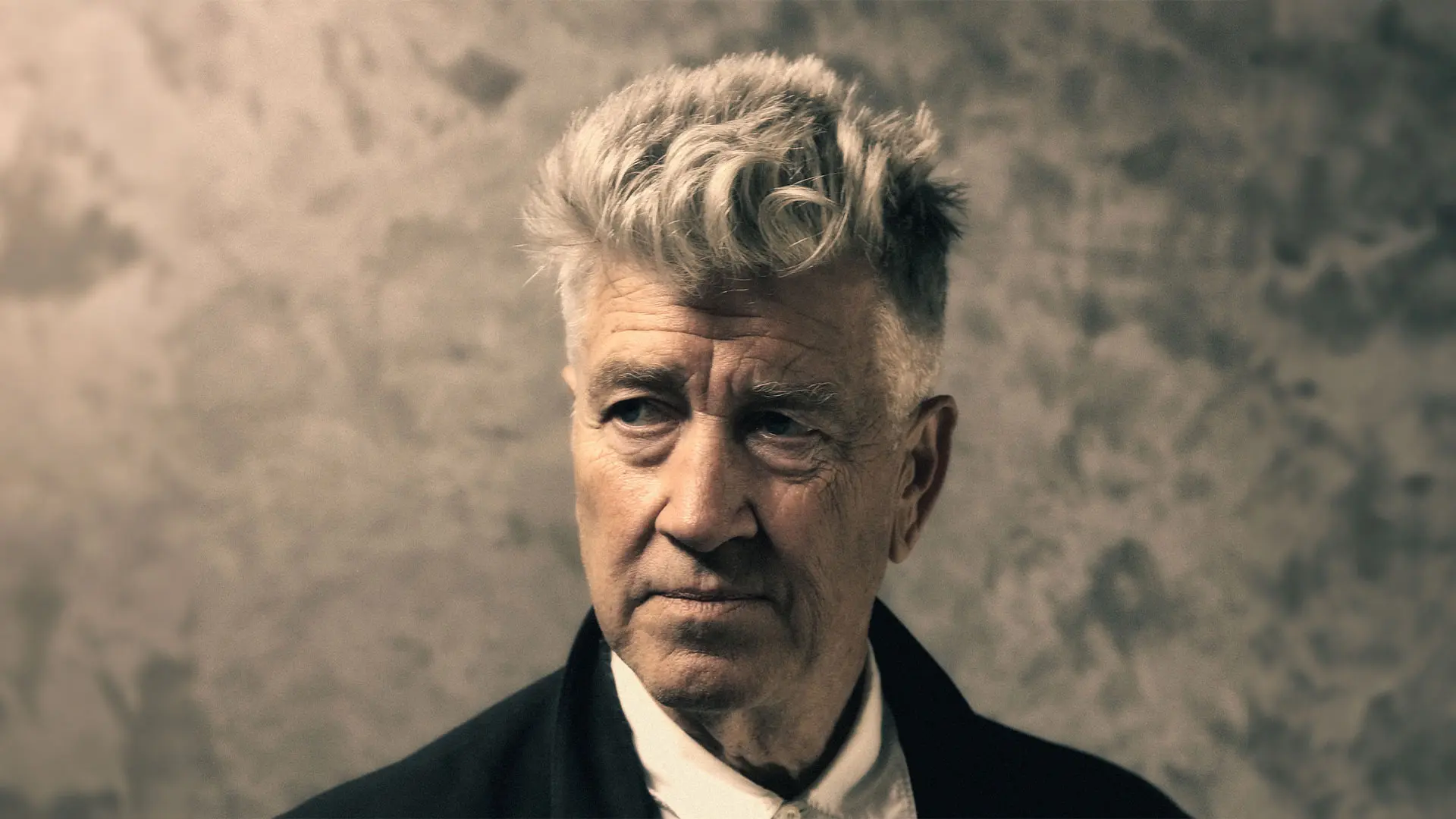In partnership with MiCodmc, a selection of establishments ripe for discovery during the 63rd edition of the Salone del Mobile.Milano, from 8th to 13th April
Focus on Vudafieri Saverino Partners
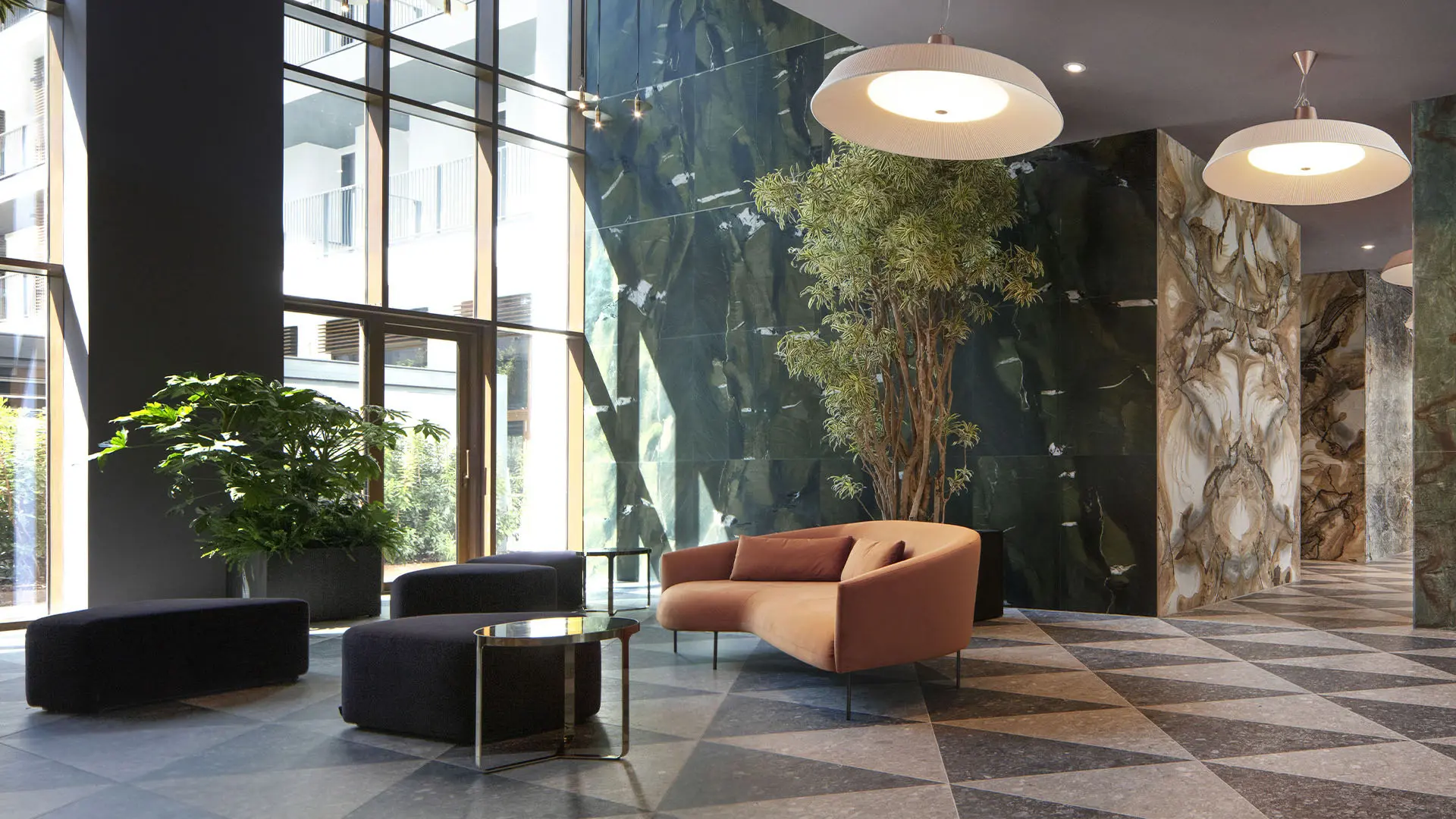
Milano Verticale Hotel, ph. Santi Caleca
The two Milanese architects Tiziano Vudafieri and Claudio Saverino – partners in the Italy and China-based studio that bears their surnames – talk about themselves in a double interview that unveils powerful cultural references and naturalistic dreams, in contrast (on the surface) with their projects, which range from exclusive restaurants to glamorous hotels in the most fashionable cities in the world.
Name: Tiziano Vudafieri and Claudio Saverino
Where do you work? In Milan, in the Porta Venezia district, and we’ve had a studio in Shanghai since 2012.
Your Instagram account: @vudafierisaverinopartners
What does your studio work on? Architecture, interior design, retail, hotels and hospitality, bringing together architectural culture, sensitivity and contemporary life.
Where did you study?
TV: At the Faculty of Architecture in Venice, under Aldo Rossi.
CS: At the Milan Polytechnic University, under Achille Castiglioni and then at La Cambre University in Brussels.
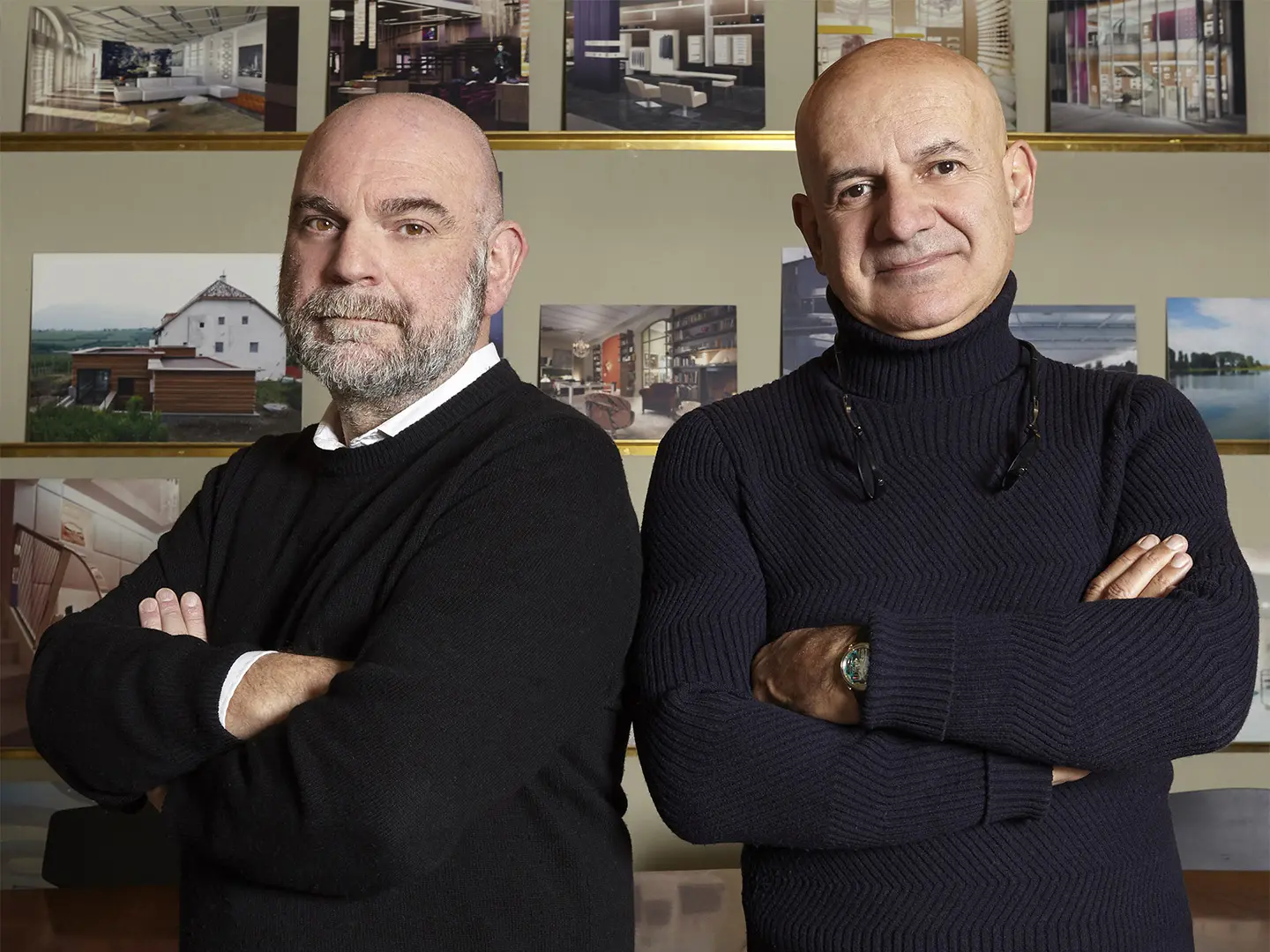
Claudio Saverino e Tiziano Vudafieri – ph. Graziella Vigo
What are you working on right now?
TV: On the catering side, we’ve teamed up with the Michelin-starred French chef Pierre Gagnaire again, for a major project in Abu Dhabi.
CS: On the hotel side, we’ve got several projects on the go, two in Cortina and one in Licata, in Sicily, for the Falkensteiner Group.
Your dream project:
TV: I always need a client, the interchange, and I’d like to do a project for one of the artists I love, possibly on a low budget, but with great depth of thought .
CS: a piece of architecture that isn’t strictly functional, such as a second home, a church, an observation centre, basically an architectural object unfettered by utilitarian requirements and with greater freedom from a formal and expressive point of view.
The project that’s influenced you the most:
TV: the Centre Pompidou by Renzo Piano, which I believe is the greatest architectural work of the 20th century.
CS: the Railway Sleeper House by Shin Takasuga, a communal residential building built in Japan during the 1970s.
A crucial element in all your projects:
TV: a narrative approach: we try to tell a story, not our own but that of the client.
CS: attention to context and to any existing features: every place has its own genius loci, something striking that it already contains and that can be physical or intangible. Only later can one decide whether to counter it or emphasise it.
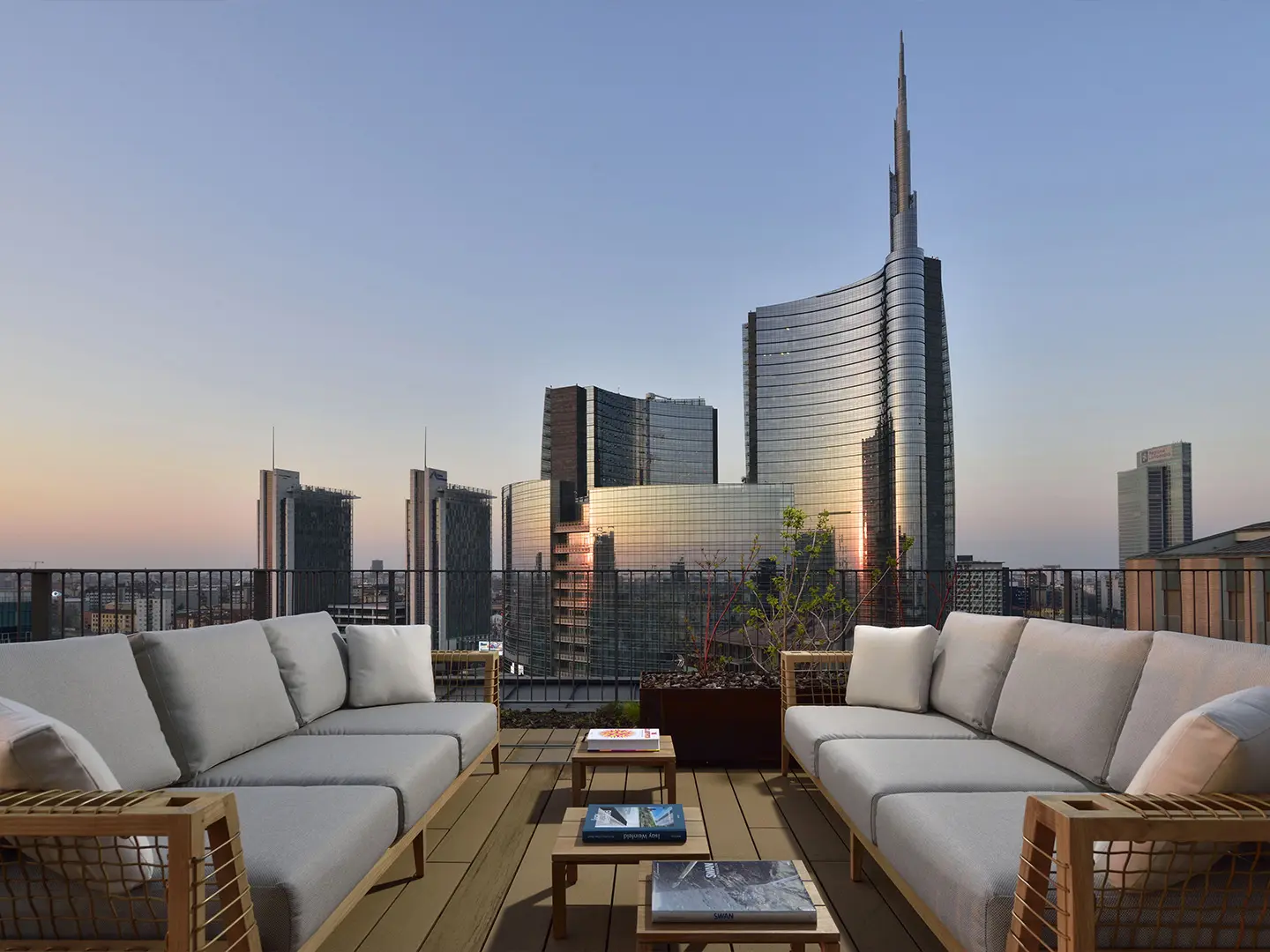
Terrazza Aperol, Venezia – ph. Santi Caleca
City centre or off the beaten track?
TV: As a great fan of Guido Guidi, the great photographer, I would choose somewhere marginal – but only in most people’s minds: the plains of Northern Italy.
CS: I’d like to create the architecture of my dreams in an extraordinarily remote place, hard to get to, completely isolated in nature – opportunities that rarely present themselves to a Milanese architect.
Something you have at home designed by you:
TV: The Second Life light, composed of 80 lightbulbs of various shapes, 70 of which are upcycled incandescent or halogen – burnt out and unusable – and 10 new perfectly functioning LED bulbs.
CS: The whole house? ☺
What presents do you like to give?
TV: Anything that isn’t necessary.
CS: Objects that are more good looking than useful, obviously.
If you could build a secret passage in your home, where would it lead?
TV: Always to somewhere different, to where I want to be right at that moment: an exhibition I have to miss because of lack of time, to my beloved Brittany facing the Ocean, a mountain path or a track where I can drive very fast.
CS: On the edge of a waterfall.
What do you usually do on Sundays?
TV: Apart from working, which unfortunately happens a lot, I do wonderfully banal things, just with the family – an increasingly rare luxury.
CS: If I’m not working, I try to rest physically and be mentally challenged by some interesting exhibition.
Your favourite place in Milan:
TV: There are so many stimuli, because I love this city: contemporary art (Prada Foundation, Hangar Bicocca, as well as Paolo Zani, Paola Clerico, Vistamare, the Minini sisters), modern art (the Claudia Gianferrari collection at Villa Necchi, GAM in Via Palestro), the restaurants and bars in which I feel at home (the Røst, the Immorale, the Camparino), some special shops ( the Stamberga concept store, the Bocca bookshop in the Galleria, Sandro Ghilardi’s shop) and lots more.
CS: The Porta Venezia Gardens, with its faint memories of grandparents and the seals at the zoo.
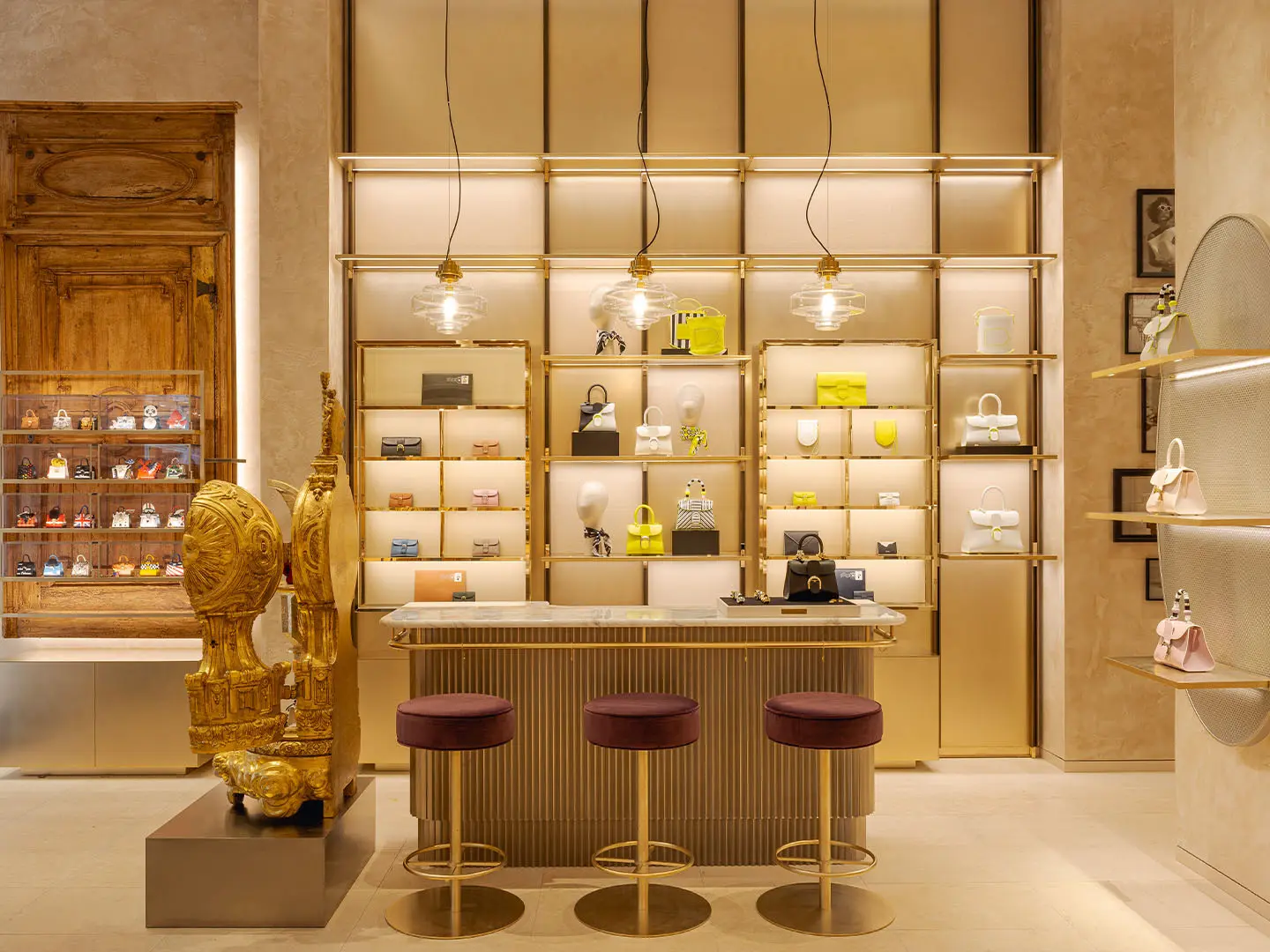
Delvaux boutique, Parigi – ph. Antoine Huot
Fala Atelier would like to ask you which your favourite column is? The Infamous Column, by Alessandro Manzoni.
Would you like to ask the next interviewee a question?
TV: If they’re an architect, I’d like to ask them why they became an architect. I am one of them, but there are so many of us that I’m always amazed by how just many there are. I’m always curious about the answer to this question.
CS: I find it difficult to design architecture without a client, I find it even more difficult to ask someone I don’t know a question.



